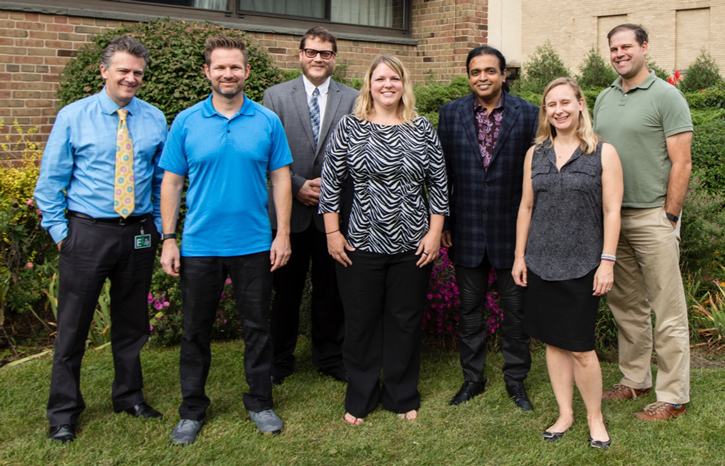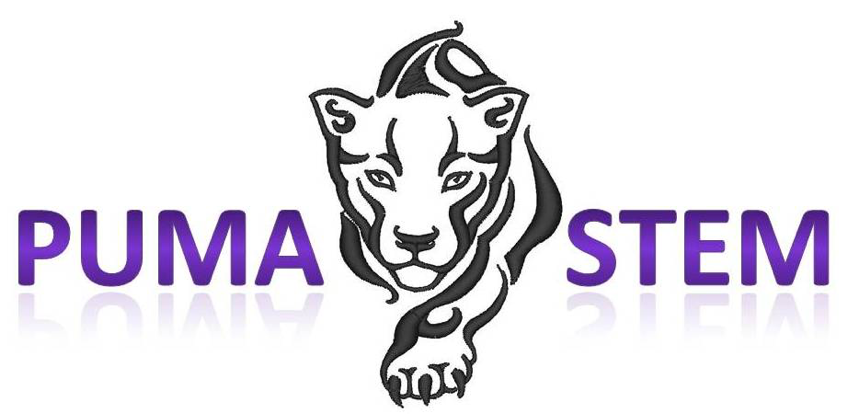Industry Partners Sought to Strengthen and Diversify STEM in Higher Education
The Need to Diversify STEM in Higher Education
Many academic programs and career fields in science, technology, engineering, and mathematics (STEM) have a history of underrepresentation by groups including women, racial/ethnic minorities, first-generation students, and individuals from lower socioeconomic backgrounds. To meet the growing demand for professionals with expertise in science and technology, higher education must increase access for traditionally excluded groups. One important strategy that enables the success of underrepresented minorities (URMs) in higher education is to leverage the impact of like-minded STEM businesses. To persist and succeed not only today, but in the future, STEM businesses will also need to become more diverse.
There is an increasing need for many different types of STEM workers in the United States. For example, while a 7 percent increase in employment is expected between 2016 and 2026 for all occupations, the U.S. Bureau of Labor Statistics projects several STEM occupations to grow at much faster rates. For example, standout occupations projected to grow rapidly include forensic science technicians (17 percent), computer and information research scientists (20 percent), and statisticians (33 percent). Because this growth will dynamically impact all sectors of global society, it will be important to include all demographic groups in STEM higher education and labor growth to build a strong and diverse workforce.
Diverse workplaces are not just needed in the future; they already yield benefits today. A 2015 study of 366 public companies from McKinsey & Company found that those in the top quartile for ethnic and racial diversity in management were 35 percent more likely to generate financial returns that outperformed their industry, and those in the top quartile for gender diversity were 15 percent more likely to outperform the industry mean. In November 2016, the Harvard Business Review distilled three key properties of diverse teams that lead to their success: they focus more on facts, process those facts more carefully, and are more innovative. The authors concluded that diversity among managers improves performance and results.
Origin of PUMA-STEM, the Partnership Seeking Industry Partners
In 2016, a partnership of institutions in the greater Chicago area was established to address the barriers to STEM experienced by URMs. The original partners (Hooke College of Applied Sciences; Elmhurst College; Concordia University Chicago; Dominican University; Oak Park and River Forest High School; Proviso Math and Science Academy) received the first pre-alliance planning grant from the National Science Foundation (NSF) and the Louis Stokes Alliance for Minority Participation (LSAMP). The partnership was named PUMA-STEM, which stands for Promotion of Underrepresented Minorities in Academic STEM.
Since December 2016, the PUMA-STEM partnership has conducted demographic and program analyses at our respective home institutions and hosted multi-institutional workshops. Workshop topics on URM participation in STEM fields have included college readiness, recruitment and retention, dual credit programs, and career and graduate services.
Future Strategies of PUMA-STEM
Moving forward, faculty and administrators from PUMA-STEM institutions are committed to continue to work together to explore approaches that benefit URM students in STEM. By leveraging strengths at each academic institution with cooperation among local high schools, community colleges, colleges, and STEM businesses, we hope to double the number of URMs graduating with four-year degrees in STEM fields from collaborating institutions. To accomplish this goal, we are investigating initiatives to increase workforce readiness, including campus and business visits and internships, initiatives to increase retention, stipend-funded peer mentoring programs, student research, and programs to assist transfer students.
PUMA-STEM aims to develop new allies in STEM-related business and industry. In late 2018, a multi-million dollar grant proposal will be submitted to the NSF that proposes a full LSAMP alliance. A formal role for industry partners will exist in the proposed full LSAMP alliance in the form of an advisory board that will help develop the strategic plan for the larger collaboration. If you or your organization is interested in getting involved, please get in touch!

PUMA-STEM plans to grow to include additional high school, two- and four-year college partners in the greater Chicago region. One especially promising avenue of growth is additional participation by Associated Colleges of the Chicago Area (ACCA) schools. ACCA is a consortium of 15 private liberal arts colleges formed in 1966 “to promote collegiate education in biology, chemistry, computer science, mathematics, physics, psychology, sociology/anthropology, and business/economics by stimulating and regularizing cooperative arrangements between the member colleges and universities and other educational and research institutions in the use of staff and facilities.” Including the higher ed partners that started PUMA-STEM, ACCA schools collectively educate approximately 55,000 students, with just over 35,000 undergraduates. This strength in numbers, together with outreach and cooperation with regional high schools and STEM businesses, has tremendous capacity to benefit URMs in STEM.
Get Involved
If you or your STEM business are interested in learning more or collaborating with PUMA-STEM to participate in collaborations or provide research opportunities or professional development for students and faculty (e.g., job shadowing, field trips, and internships), PUMA-STEM invites you to reach out. You will be joining a network of institutions and partners dedicated to increasing the participation and success of underrepresented groups in STEM and you will gain access to a pool of talented diverse STEM students in the greater Chicago area.
For more information, contact:
Christopher Reigstad, principal investigator on the NSF-funded Pre-Alliance grant, and associate professor of biology at Concordia University of Chicago.
Follow PUMA-STEM on Twitter and on Facebook:



Comments
add comment